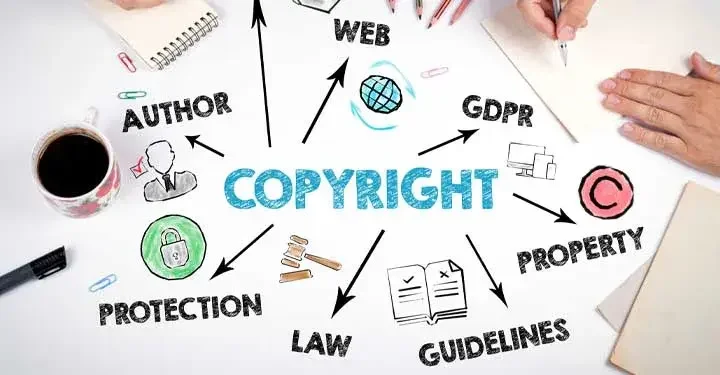A copyright protects original and tangible creative works. This includes photos, books, drawings, movie scripts, computer software programs, songs, and many other creative works. As the copyright owner, you have the exclusive right to use that work.

If you use someone else's copyrighted work, without their permission, you could be facing fines and, in some cases, criminal charges. This is why conducting a thorough copyright search is essential for any business.
How to conduct a copyright search
Not all works are eligible for the protection that copyright registration provides. Specifically, you cannot copyright ideas, names, ingredients, facts, phrases, concepts, processes, or discoveries. So, before you get started on your search, you should evaluate whether or not what you wish to protect or use can even be protected under the law.
Conducting a copyright search is an important part of the copyright registration process.
Registered copyrights
You can start your search for an existing copyright by heading to your local library and obtaining a physical copy of the Catalog of Copyright Entries (CCE) or accessing the microfiche version. The physical versions of the CCE only document records before 1982. For anything more recent than that, which you would want to check as well, you can access the online database. You want to check both versions to cover all of your bases.
There are limits to this approach, as records of ownership rights are not recorded. This means that you may calculate that a copyright has expired, to later find out that the rights had been transferred or renewed, and the copyright is still protected.
Alternatively, you can go, in person, to the U.S. Copyright Office, located in the Library of Congress in Washington, D.C. The staff can help you find the records you need and also explain the procedures for searching.
If you want them to do the search for you and provide a report of the findings, there is an hourly fee involved.
Unregistered copyrights
Copyright protection is effective as soon as an original work is created and put down in tangible form. Registration is not required. This means that any search conducted with the Copyright Office will not be conclusive. A work can exist but not have been registered. (Always remember that there are benefits to registering a copyright.)
For unregistered copyrights, you could search the Performing Rights Organizations (PRO) and Reproduction Rights Organizations (RRO) databases. Copyright owners use these organizations to collect royalties for their works. This means they will have lists. While these databases are intended to be used to identify a copyright owner to license their copyrighted work or to hire them to create something, you can use this information to determine whether or not an unregistered copyright, that you did not find in your Copyright Office search, already exists.
When a copyright is already taken
If your research results in proof that someone else already has a copyright for a work that you wanted to produce, there is a solution.
You are allowed to make a new claim if you make substantial and creative changes. If you submit a new application with only minor changes, it will be rejected, as it would be considered a derivative work of the original. For example, the Copyright Office would consider mere spelling changes to be a derivative work.
Additionally, if the work is in the public domain, anyone can use the work without permission. When a copyright expires or when a work is created by a federal government employee, the work goes into the public domain. This means that anyone can use the work in any way that they wish.
Whether you have a creative business idea that you want to create and protect, or you want to locate the owner of a copyright that you wish to use in your business, conducting a copyright search should always be part of your process.

